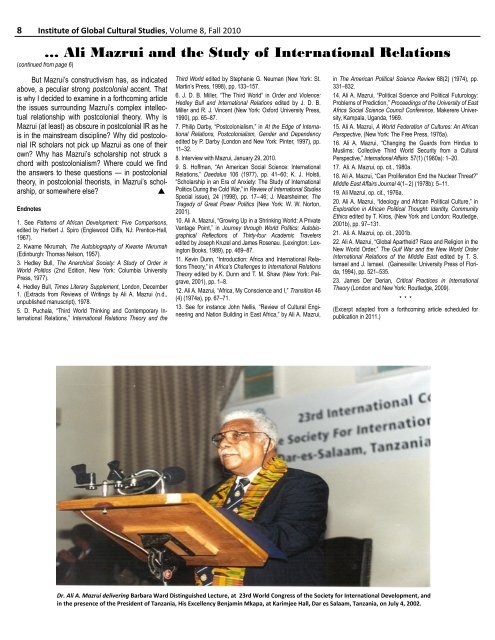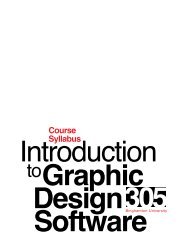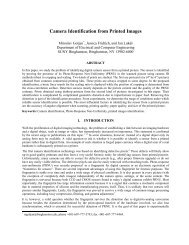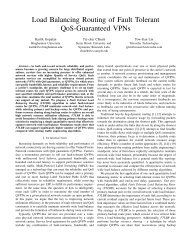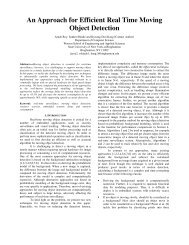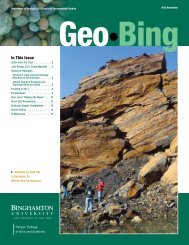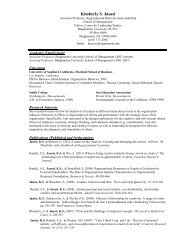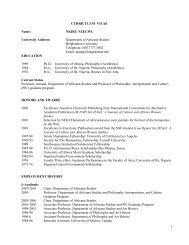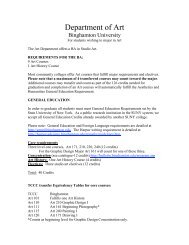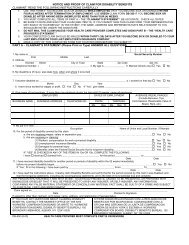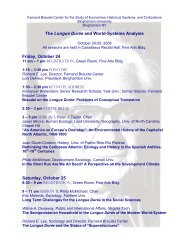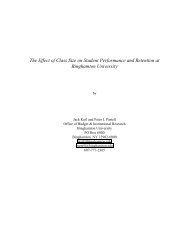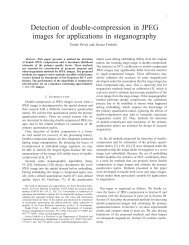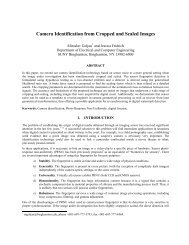8 Institute of Global Cultural Studies, <strong>Volume</strong> 8, <strong>Fall</strong> <strong>2010</strong>… Ali Mazrui and the Study of International Relations(continued from page 6)But Mazrui‘s constructivism has, as indicatedabove, a peculiar strong postcolonial accent. Thatis why I decided to examine in a forthcoming articlethe issues surrounding Mazrui‘s complex intellectualrelationship with postcolonial theory. Why isMazrui (at least) as obscure in postcolonial IR as heis in the mainstream discipline? Why did postcolonialIR scholars not pick up Mazrui as one of theirown? Why has Mazrui‘s scholarship not struck achord with postcolonialism? Where could we findthe answers to these questions — in postcolonialtheory, in postcolonial theorists, in Mazrui‘s scholarship,or somewhere else?Endnotes1. See Patterns of African Development: Five Comparisons,edited by Herbert J. Spiro (Englewood Cliffs, NJ: Prentice-Hall,1967).2. Kwame Nkrumah, The Autobiography of Kwame Nkrumah(Edinburgh: Thomas Nelson, 1957).3. Hedley Bull, The Anarchical Society: A Study of Order inWorld Politics (2nd <strong>Edition</strong>, New York: Columbia UniversityPress, 1977).4. Hedley Bull, Times Literary Supplement, London, December1. (Extracts from Reviews of Writings by Ali A. Mazrui (n.d.,unpublished manuscript), 1978.5. D. Puchala, ―Third World Thinking and Contemporary InternationalRelations,‖ International Relations Theory and theThird World edited by Stephanie G. Neuman (New York: St.Martin‘s Press, 1998), pp. 133–157.6. J. D. B. Miller, ―The Third World‖ in Order and Violence:Hedley Bull and International Relations edited by J. D. B.Miller and R. J. Vincent (New York: Oxford University Press,1990), pp. 65–87.7. Philip Darby, ―Postcolonialism,‖ in At the Edge of InternationalRelations, Postcolonialism, Gender and Dependencyedited by P. Darby (London and New York: Pinter, 1997), pp.11–32.8. Interview with Mazrui, January 29, <strong>2010</strong>.9. S. Hoffman, ―An American Social Science: InternationalRelations,‖ Daedalus 106 (1977), pp. 41–60; K. J. Holsti,―Scholarship in an Era of Anxiety: The Study of InternationalPolitics During the Cold War,‖ in Review of International Studies<strong>Special</strong> issue), 24 (1998), pp. 17– 46; J. Mearsheimer, TheTragedy of Great Power Politics (New York: W. W. Norton,2001).10. Ali A. Mazrui, ―Growing Up in a Shrinking World: A PrivateVantage Point,‖ in Journey through World Politics: AutobiographicalReflections of Thirty-four Academic Travelersedited by Joseph Kruzel and James Rosenau. (Lexington: LexingtonBooks, 1989), pp. 469–87.11. Kevin Dunn, ―Introduction: Africa and International RelationsTheory,‖ in Africa’s Challenges to International RelationsTheory edited by K. Dunn and T. M. Shaw (New York: Palgrave,2001), pp. 1–8.12. Ali A. Mazrui, ―Africa, My Conscience and I,‖ Transition 46(4) (1974a), pp. 67–71.13. See for instance John Nellis, ―Review of Cultural Engineeringand Nation Building in East Africa,‖ by Ali A. Mazrui,in The American Political Science Review 68(2) (1974), pp.331–832.14. Ali A. Mazrui, ―Political Science and Political Futurology:Problems of Prediction,‖ Proceedings of the University of EastAfrica Social Science Council Conference, Makerere University,Kampala, Uganda, 1969.15. Ali A. Mazrui, A World Federation of Cultures: An AfricanPerspective, (New York: The Free Press, 1976a).16. Ali A. Mazrui, ―Changing the Guards from Hindus toMuslims: Collective Third World Security from a CulturalPerspective,‖ International Affairs 57(1) (1980a): 1–20.17. Ali. A. Mazrui, op. cit., 1980a.18. Ali A. Mazrui, ―Can Proliferation End the Nuclear Threat?‖Middle East Affairs Journal 4(1– 2) (1978b): 5–11.19. Ali Mazrui, op. cit., 1976a.20. Ali A. Mazrui, ―Ideology and African Political Culture,‖ inExploration in African Political Thought: Identity, CommunityEthics edited by T. Kiros, (New York and London: Routledge,2001b), pp. 97–131.21. Ali. A. Mazrui, op. cit., 2001b.22. Ali A. Mazrui, “Global Apartheid? Race and Religion in theNew World Order,‖ The Gulf War and the New World OrderInternational Relations of the Middle East edited by T. S.Ismael and J. Ismael. (Gainesville: University Press of Florida,1994), pp. 521–535.23. James Der Derian, Critical Practices in InternationalTheory (London and New York: Routledge, 2009).* * *(Excerpt adapted from a forthcoming article scheduled forpublication in 2011.)Dr. Ali A. Mazrui delivering Barbara Ward Distinguished Lecture, at 23rd World Congress of the Society for International Development, andin the presence of the President of Tanzania, His Excellency Benjamin Mkapa, at Karimjee Hall, Dar es Salaam, Tanzania, on July 4, 2002.
Institute of Global Cultural Studies, <strong>Volume</strong> 8, <strong>Fall</strong> <strong>2010</strong> 9Ali A. Mazrui in History and Politics:His Contributions to the Growth of Africa and the Developing WorldBy A. B. Assensoh and Yvette M. Alex-Assensoh*The observation of the busy as well as fulfilledlife and times of Professor Ali Al‘amin Mazruihave brought a lot of cogent meaning to our understandingof his well-lived and much-appreciatedlife, all of which go a long way to confirm thelate Morehouse College President BenjaminElijah Mays‘ conclusion in his eulogy of the lateReverend Dr. Martin Luther King, Jr., his formerMorehouse College student, that it is not howlong one lives that matters, but how well andmeaningful that life has been. Dr. Mays, himself adistinguished Phi Beta Kappa scholar was, in hiseulogy, referring to the fact that at Dr. King‘s assassinationon April 4, 1968 in Memphis,Tennessee, the Nobel Peace Prize laureateand Baptist Preacher was only 39years old. Happily, Professor Mazrui has,comparatively, lived a very long and meaningfullife.Toward the foregoing ends and whereone‘s attributes are concerned, we alsoagree that, as we complete our co-authoredessay about 77-year-old Dr. Mazrui,every human being is deemed mortal. Discussingman‘s mortality versus his ambition,we remember Shakespeare‘s prompt conclusionin his published famous play, JuliusCaesar, as he touched on Caesar‘s ambitionthat all of these details evoke universality.Therefore, as we see the graduallyagingphotographs of Professor Mazrui,which makes him a meaningful Mwalimu, inthe true meaning of the accolade, we agree withmany other observers of the Mazuriana miraclethat one day, in the distant future, our belovedTeacher (Mwalimu), Mentor (Nana as Ghana‘sAkan chieftain), and indeed, our dear friendcalled Mazrui may not physically be in our midst.That thought, in itself, appropriately prompts usto enlist what Ghana‘s late British-educated AttorneyJoseph Emmanuel (Joe) Appiah aptlynoted when he utilized for illustration the followingquote from Thomas Moore in his brilliantautobiography, Joe Appiah: The Autobiographyof an African Patriot (1990):When time shall steal our years awayAnd steal our pleasures too,The memory of the past will stayAnd half our joys renew …Professor V. Y. Mudimbe and IGCS Director Ali A. Mazrui, April <strong>2010</strong>.Also, when we take the time to observe the sheerproductivity in teaching as well as the sheer volumeof the published output and distinction of Dr.Mazrui as a scholar, a teacher, a public-cumorganicintellectual, it seems that he did it inrapid succession with the onerous thought thatin the words of Alfred Tennyson, as Ghana‘s latePresident Kwame Nkrumah (1909–1972) quotedin his 1957 published memoirs, Ghana: The Autobiographyof Kwame Nkrumah, that there was somuch to be done, with very little done in his life,that he (Mazrui) must also hurry with his accomplishments.Dr. Nkrumah, the future GhanaianPresident, quoted Tennyson‘s two-line memorablewords in his 1934 application for undergraduateadmission into Pennsylvania-basedLincoln University, where he had decided totravel from his native Gold Coast (now calledGhana) to acquire higher education, which wasobviously to prepare himself for the momentousand historic tasks that were lying ahead of him inhis native land (colonial Gold Coast) as part ofthe nationalist leadership to prompt the British, asthe colonial masters, to grant independence tothe colony. The words of Tennyson that Nkrumahquoted in 1934, which are important for us toquote as we are writing our essay about KenyanbornProfessor Mazrui, were the following:So many worlds, so much to doSo little done, such things to be …With a similar Western type of education, it isvery useful that we have drawn brief parallelsbetween Professor Mazrui‘s life and the lives ofGhana‘s Nkrumah and Uncle Joe (as AttorneyAppiah was affably called by all and sundry). Ofcourse, it is a truism that Mazrui is from Kenya inEast Africa, while Nkrumah and Appiah wereGhanaian compatriots, who were also earlierpolitical collaborators, thereby knowing eachother very well. Professor Mazrui, on the otherhand, also, knew both men well and has, in fact,written directly and indirectly about both of them.In his many classrooms, Dr. Mazrui has taughtan unlimited amount of courses in politics thattouched on the nationalist political struggles ofboth unique men when discussing West Africanpolitics. That is why we have deemed it veryuseful to quote, even if briefly, from theirpublished memoirs. While Dr. Mazrui‘s significancestarts with his birth in East Africa,it is a fact that the two West African politicalfigures, who were much older thanMazrui, lived and took part in the anti-colonialnationalist struggles of their belovedGold Coast, which became Ghana on March6, 1957, at independence. Fortunately, thepolitical and business aspects of AttorneyAppiah‘s life has been brilliantly discussedby Professor Emmanuel K. Akyeampong,the Harvard University historian, in a recentpublication in USA-based Journal of ThirdWorld Studies (<strong>2010</strong>), the flagship publicationof the Association of Third World Studies(ATWS) of Americus, Georgia.To a large extent, Dr. Mazrui — with hisversatility — could be seen as a product of Britishcolonial education in the 1950s and 1960s, andhe could easily be linked to the colonial history ofhis native Kenya and the overall colonial politicalexperiences in other parts of Africa. There, areindeed, many reasons for one to do such a comparisoneven if minimally.Therefore, before the advent of the activestruggles of African nationalists and Pan-Africaniststo break the yoke and shackles of colonialismas well as neo-colonialism on the continent, Africawas seen by European and other Western (or non-African) writers as being both mysterious andbackward. Toward that end, Joseph Conrad(1857–1924), the Polish-born English writer, hadthe audacity to pen his book, Heart of Darkness,in which he referred to Africa as the ―dark continent.‖It would take the writings of ProfessorMazrui and various progressive African authors tohelp debunk these stereotypical and condescend-


